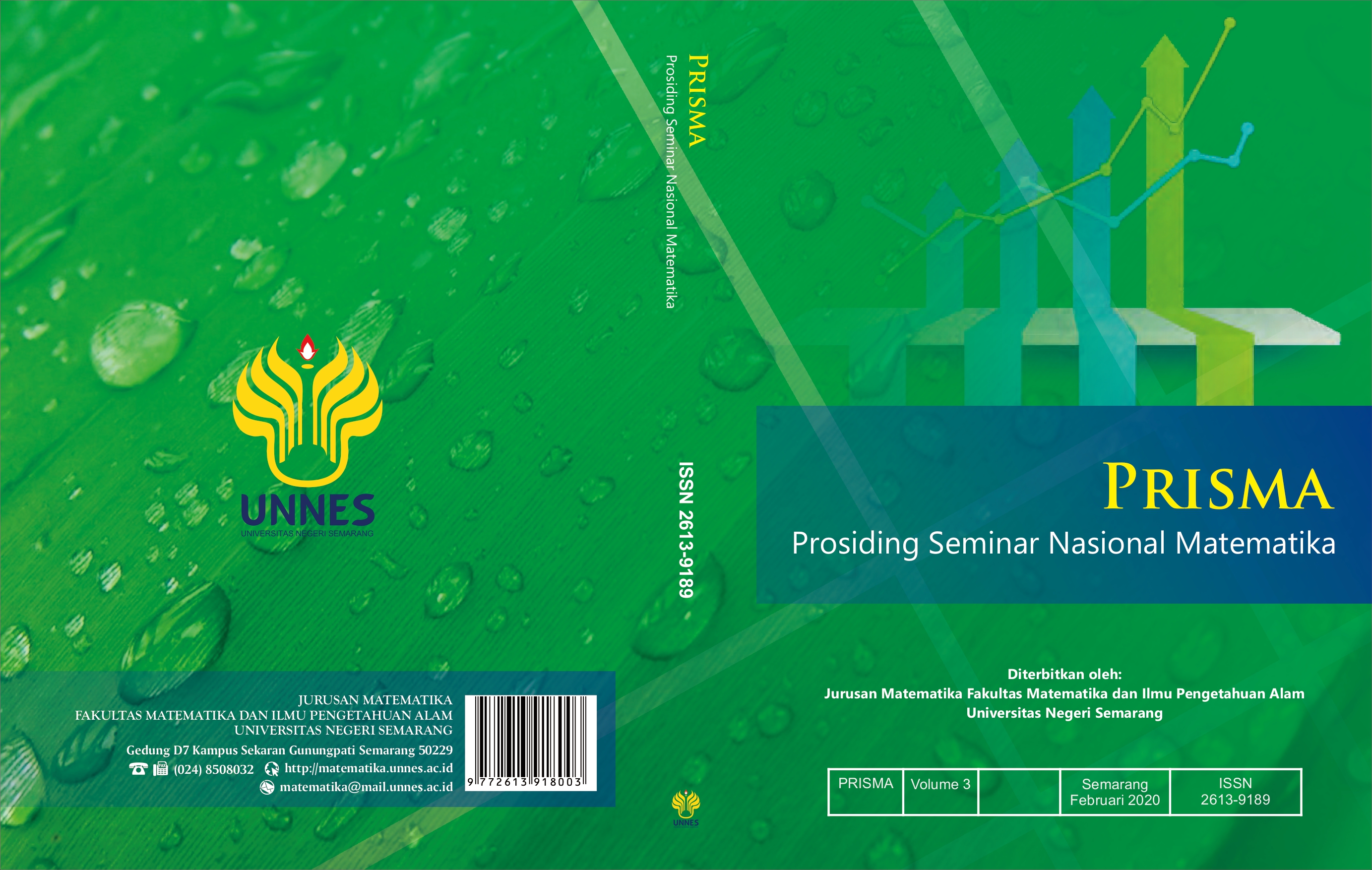Telaah kerangka kerja PISA 2021: era integrasi computational thinking dalam bidang matematika
Main Article Content
Abstract
PISA adalah studi yang diselenggarakan untuk mengevaluasi sistem pendidikan negara-negara yang berpartisipasi. Siswa yang ikut berkontribusi dalam PISA adalah siswa usia SMP yang diukur kemampuannya dalam bidang matematika, sains, dan membaca. Pada tahun 2021, siklus studi mayor PISA akan kembali ke bidang matematika sebagaimana yang dilakukan pada tahun 2012. Dari draft yang telah dirilis, terdapat beberapa perbedaan kerangka kerja (framework) PISA 2021 dengan PISA 2012, salah satunya adalah pendefinisian ulang kemampuan literasi matematis dan masuknya computational thinking dalam asesmen bidang matematika. Dalam artikel ini, penulis membuka diskusi tentang kerangka kerja PISA 2021 sekaligus membahas aspek computational thinking yang menjadi pembeda PISA 2021 bidang matematika dengan PISA sebelumnya.
Article Details
References
Bell, T., Alexander, J., Freeman, I., & Grimley, M. (2009). Computer science unplugged: School students doing real computing without computers. The New Zealand Journal of Applied Computing and Information Technology, 13(1), 20–29.
Bocconi, S., Chioccariello, A., Dettori, G., Ferrari, A., Engelhardt, K., Kampylis, P., & Punie, Y. (2016). Developing Computational Thinking in compulsory education, Implications for policy and practice. Luxembourg: Publications Office of the European Union. https://doi.org/10.2791/792158
Cotton, K. (1991). Teaching Thinking Skills. Northwest Regional Educational Laboratory, School Improvement Program.
CS for All. (n.d.). Retrieved from https://www.csforall.org/
Grover, S. (2018). The 5th ‘C’ of 21st Century Skills? Try Computational Thinking (Not Coding). Retrieved from https://www.edsurge.com/news/2018-02-25-the-5th-c-of-21st-century-skills-try-computational-thinking-not-coding
Hidayat, W. N., Muladi, M., & Mizar, M. A. (2016). Studi integrasi TIK dalam pembelajaran di sekolah menengah kejuruan. Jurnal Pendidikan: Teori, Penelitian, Dan Pengembangan, 1(12), 2281–2291.
Khine, M. S. (2018). Strategies for Developing Computational Thinking. In M. S. Khine (Ed.), Computational Thinking in the STEM Disciplines (pp. 3–10). Springer, Cham.
Ling, U. L., Saibin, T. C., Naharu, N., Labadin, J., & Aziz, N. A. (2018). An evaluation tool to measure computational thinking skills: pilot investigation. National Academy of Managerial Staff of Culture and Arts Herald, 1, 606–614.
OECD. (2013). PISA 2012 Assessment and Analytical Framework: Mathematics, Reading, Science, Problem Solving and Financial Literacy. OECD Publishing.
OECD. (2018). PISA 2021 mathematics framework (second draft).
Papert, S. (1980). Mindstorms: Children, computers, and powerful ideas. Basic Books, Inc.
Riddell, R. (2018). Should the 4 Cs of 21st century skills make room for one more? Retrieved from https://www.educationdive.com/news/should-the-4-cs-of-21st-century-skills-make-room-for-one-more/517878/
Sabitzer, B., Demarle-Meusel, H., & Jarnig, M. (2018). Computational thinking through modeling in language lessons. IEEE Global Engineering Education Conference, EDUCON, 2018-April(2), 1913–1919. https://doi.org/10.1109/EDUCON.2018.8363469
Seow, P., Looi, C.-K., How, M.-L., Wadhwa, B., & Wu, L.-K. (2019). Educational Policy and Implementation of Computational Thinking and Programming: Case Study of Singapore. In S.-C. Kong & H. Abelson (Eds.), Computational Thinking Education (pp. 345–361). Singapore: Springer Singapore.
So, H.-J., Jong, M. S.-Y., & Liu, C.-C. (2020). Computational Thinking Education in the Asian Pacific Region. The Asia-Pacific Education Researcher, 29(1), 1–8. https://doi.org/10.1007/s40299-019-00494-w
Weintrop, D., Beheshti, E., Horn, M., Orton, K., Jona, K., Trouille, L., & Wilensky, U. (2016). Defining Computational Thinking for Mathematics and Science Classrooms. Journal of Science Education and Technology, 25(1), 127–147. https://doi.org/10.1007/s10956-015-9581-5
Wing, J. M. (2006). Computational Thinking. Communications of the ACM, 49(3), 33–35.
Wing, J. M. (2017). Computational thinking ’ s influence on research and education for all. Italian Journal of Educational Technology, 25(2), 7–14. https://doi.org/10.17471/2499-4324/922
